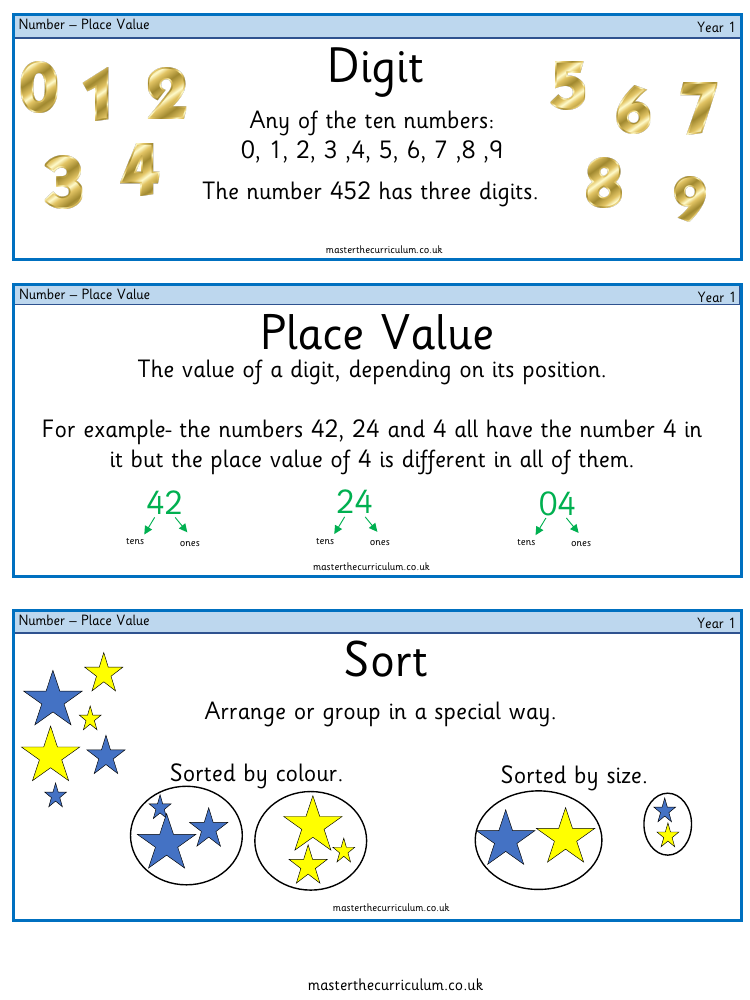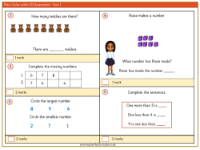Place value within 10 - Vocabulary

Maths Resource Description
Understanding the concept of place value is a fundamental aspect of numeracy for Year 1 students. It involves recognising digits, which are any of the ten numbers from 0 to 9. The place value of a digit is determined by its position within a number, which affects its value. For instance, the digit 4 has different place values in the numbers 42, 24, and 4. To illustrate, in the number 42, the 4 is in the 'tens' place, while in 24, it's in the 'tens' place but has a different value, and in the number 4, it stands alone as a single unit.
In addition to place value, the curriculum introduces other key terms such as 'sort', which means to arrange items according to a specific criterion, such as size or colour. The 'number track' is a line of numerals in sequence, which helps students understand the progression of numbers and concepts like 'less/fewer' and 'more/greater', indicating smaller or larger quantities respectively. Furthermore, students learn about comparison symbols like less than (<), equal to (=), and greater than (>) to compare numerical values. Numerals are symbols or names that represent numbers, and the act of comparing involves evaluating whether one number is greater than, less than, or equal to another. This vocabulary forms the basis for the Year 1 Place Value Vocabulary Assessment, ensuring a solid foundation in number sense for young learners.


